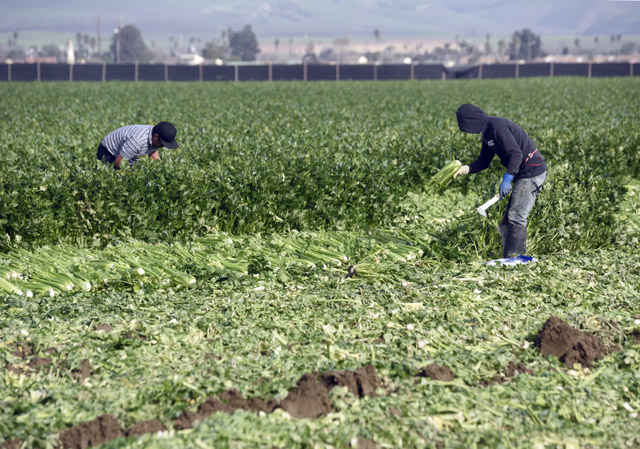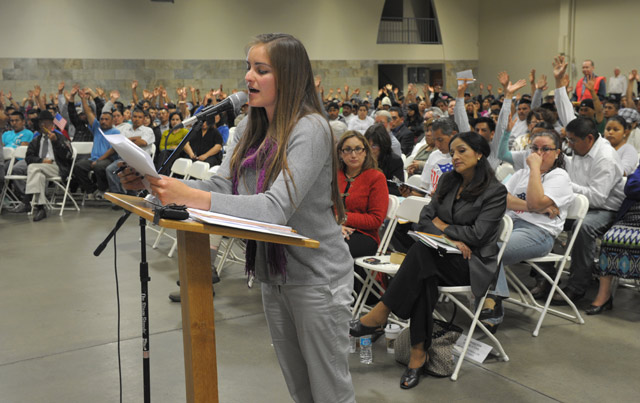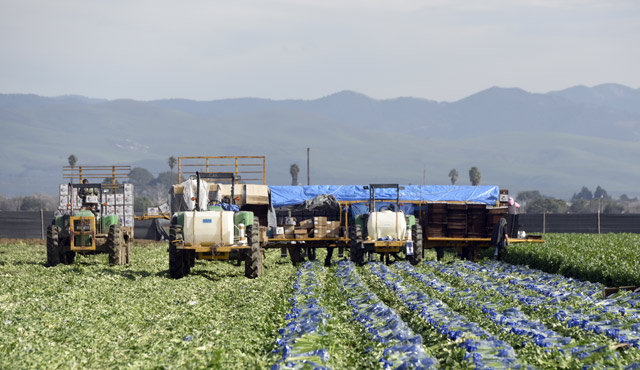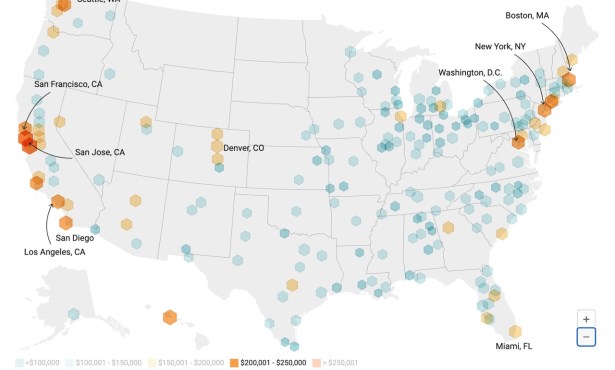Farmworkers Fight for Rights
County Ag Committee Questions Report on Poor Working Conditions

Agriculture industry representatives are pushing back against a report that highlights horrid working conditions for Santa Barbara County farmworkers. Last month, advocates with Central Coast Alliance United for a Sustainable Economy (CAUSE) convened press conferences in Santa Maria and Ventura, calling for supervisors in both counties to adopt a Farmworker Bill of Rights by César Chávez Day, March 31.
CAUSE’s report comes at a time of an estimated 25 percent labor shortage in North County. But tenuous immigration status coupled with low wages and long work hours create conditions ripe for exploitation, disempowerment, and abuse, CAUSE argued. Of the estimated 17,000 farmworkers in North County, 72 percent, they say, are not U.S. citizens.
The organization focuses on wage theft, which includes being underpaid, working during a break, or unpaid responsibilities before or after work. For starters, farmworkers do not receive overtime unless they work 10 hours in a day — or 60 hours in a week — rather than the standard eight-hour day and 40-hour workweek. This fact, CAUSE argues, is left over from the Jim Crow South. (A few years ago, state legislation to remedy this discrepancy lost by just two votes in the Assembly.)

For the study, CAUSE conducted door-to-door interviews with 300 North County farmworkers. (They copied the process in Ventura.) They used the results of their oral interviews — ranging from five to 20 minutes — to create charts generalizing statistics countywide. CAUSE found a third of its respondents suffered from wage theft. The report quotes a worker who claimed his paycheck was short, but he feared losing his job if he spoke up.
In addition, 42 percent of respondents said they never took time off; 25 percent had been injured at work; 75 percent received no benefits or compensation and continued working after being injured; 14 percent said their boss has threatened them. Just 3.7 percent filed a complaint against their employer.
The respondents worked for more than 100 different employers, according to research staffer Lucas Zucker. CAUSE declined to release the names of the farms with the worst working conditions. Some workers, he said, had “a lot to say”; others were terrified to speak. Their identities were kept anonymous.
As proposed, the bill of rights would implement job protection for pregnant women on unpaid maternity leave; require shade, water, and bathroom areas; hire a county investigator to enforce state laws; create an anonymous-tip hotline; institute a $5,000 penalty for retaliation against any workers who file complaints; and add a crime-victim-advocate position to the District Attorney’s Office to focus on sexual assault, among other things.
But the county’s Agriculture Advisory Committee — supervisor appointees and farm industry reps — questioned the statistical significance of the report and contended it did not accurately depict the workforce. In fact, in a letter sent to the county supervisors this week, the committee put “report” in quotation marks. It pointed to existing legal protections such as Cal/OSHA and the state’s Labor Commissioner as effective without the need of “new and duplicative mechanisms.” The committee called the report’s methodology flawed and alleged CAUSE previously declined to disclose survey questions.
CAUSE sent The Santa Barbara Independent the list of 20 questions used in the interviews. Most are straightforward: “Do you work in one place the whole year or follow the crops?” “Do you get breaks at work?” “Do you have access to potable water?” Others are more subjective: “Do you believe your work conditions are dangerous or harmful to your health?” “Do you feel confident asking for time off?”

Last month, the already tense matter worsened after CAUSE Executive Director Maricela Morales failed to attend an Advisory Committee meeting to discuss the report. Shortly after, Morales apologized and explained to the members via email that she had marked the incorrect date on her calendar and asked to reschedule in April. But some committee members believe the absence seriously weakened their campaign.
In an interview, Sharyne Merritt, who is the Agriculture Advisory Committee chair, stressed the letter was only in response to the report — not the recommendations in the Farmworker Bill of Rights. As to those, she said the committee had not reviewed them. In the letter, the committee said it “welcome[s] the opportunity to discuss this important matter and address any credible issues.”
Other critics dismissed the Bill of Rights as a hurried media show without first engaging growers privately. CAUSE director Hazel Davalos stressed it is crucial the county supervisors place the Farmworker Bill of Rights on their agenda before the June budget hearings. “These issues have gone on long enough,” she said. “We shouldn’t even need to make a report to prove it.”
Supervisor Peter Adam, who co-owns Adam Brothers Family Farms and employs as many as 400 farmworkers, insisted commercial farms like his are in absolute compliance with state laws. “I refuse to believe it,” he said of the report’s unfavorable findings. He contended poor working conditions could exist at what he likes to call “snow-globe farm[s],” or smaller hobbyist farms.
Supervisor Salud Carbajal, who has been endorsed by CAUSE in his bid to represent the 24th Congressional District, said he will facilitate a meeting this month between CAUSE and ag industry representatives. Last fall, Carbajal and Supervisor Doreen Farr attended a meeting with 150 farmworkers who spoke about terrible conditions.
Davalos expressed hopefulness that the matter would go before both the Ag Advisory Committee and the Board of Supervisors; it does not matter which comes first, she added.


